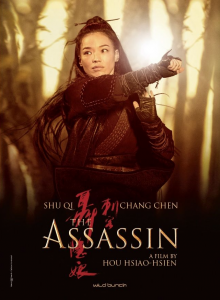 A highlight of the 2015 Cannes Film fest, The Assassin finds the acclaimed Taiwanese director Hou Hsiao-hsien in top form with a ravishingly beautiful film that offers some of the most staggering imagery to be seen this year in any film.
A highlight of the 2015 Cannes Film fest, The Assassin finds the acclaimed Taiwanese director Hou Hsiao-hsien in top form with a ravishingly beautiful film that offers some of the most staggering imagery to be seen this year in any film.
The new feature demonstrates the director’s extraordinary control over each and every aspect of the filmmaking. Here is a period martial-arts film that, in defiance of the conventions of its genre, for long stretches of time, is utterly wordless and devoid of action. Instead, it conveys its powerful tale through long, expressive silences that rigorous mise en-scene that force viewers to pay attention to the masterful process of its creation as an art film par excellence
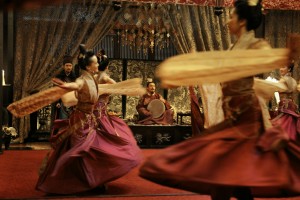 Winning the Best Director award at Cannes, The Assassin then played at the Toronto Film Fest and will screen in the upcoming New York Film Fest. Well Go USA will release the film in New York at the Film Society of Lincoln Center’s Walter Reade Theatre and the IFC Center on October 16, followed by a national roll-out.
Winning the Best Director award at Cannes, The Assassin then played at the Toronto Film Fest and will screen in the upcoming New York Film Fest. Well Go USA will release the film in New York at the Film Society of Lincoln Center’s Walter Reade Theatre and the IFC Center on October 16, followed by a national roll-out.
Back with his first film in eight years, the acclaimed director offers his distinctive take and idiosyncratic on the more traditional wuxia film. Those expecting the pleasures of a film like the Oscar-winning Crouching Tiger, Hidden Dragon, or for that matter, Zhang Yimou’s The House of Flying Daggers, will be disappointed.
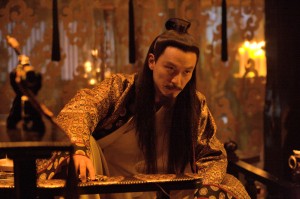 The story, set in ninth-century China, is simple in text but richer in subtext. The protagonist is Nie Yinniang (played by Hou regular Shu Qi), a young woman who was abducted in childhood from a decorated general and raised by a nun who trained her in the martial arts.
The story, set in ninth-century China, is simple in text but richer in subtext. The protagonist is Nie Yinniang (played by Hou regular Shu Qi), a young woman who was abducted in childhood from a decorated general and raised by a nun who trained her in the martial arts.
After 13 years of exile, she is returned to the land of her birth as an expert assassin, ordered to kill her betrothed husband-to-be. In the process, she needs to confront her parents, her memories, and her long-repressed feelings in a choice to sacrifice the man she loves, the powerful Lord Tian Ji’an (Chang Chen), whom she was supposed to marry, or break forever with the sacred way of the righteous assassins.
Subtlety, delicacy, and elegance define The Assassin from first frame to last, serving as a reminder that this is first and foremost a personal work by a celebrated auteur.
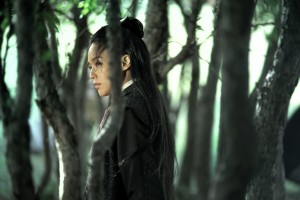 By standards of the the wuxia martial arts genre, the film contains a relatively small number of action set pieces, but they each is staged with remarkable precision, displaying subtle mise-en-scene, whether done from a distance or from a close up.
By standards of the the wuxia martial arts genre, the film contains a relatively small number of action set pieces, but they each is staged with remarkable precision, displaying subtle mise-en-scene, whether done from a distance or from a close up.
The first reel unfolds in a long, carefully choreographed and framed take, which arouses our curiosity as to the tale’s central figure. The pacing is slow throughout, which befits a film whose narrative is rather slender but is marked by ambience that’s rich and mysterious and a visual palette in which each color and each angle have been meticulously chosen.
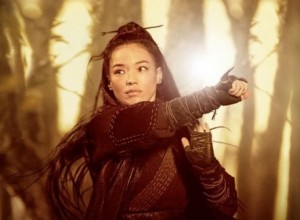




Speak Your Mind